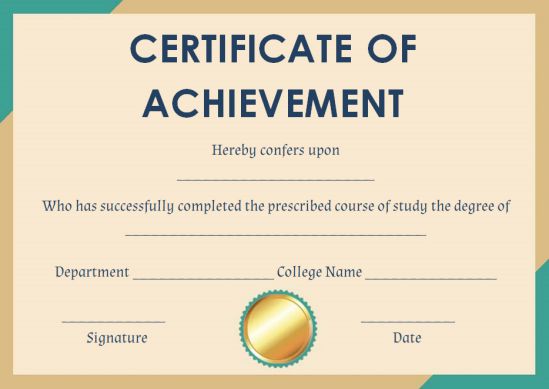Fake degrees pose a major issue that can have negative impacts on the society and the economy. They could redistribute resources favor of those who are status-seekers and hamper the transfer of knowledge between employers. They can also adversely affect legitimate educational institutions and increase transaction costs for companies.
Job Market
Fake degrees can have negative consequences for the economy and society. It could, for instance, lead to an inefficient work environment and a higher percentage of turnover of staff. It can also cause financial loss and damage to the image of a business. This is a concern for legitimate institutions of higher education that lose revenue from tuition fees and must invest money in enforcing the rights in intellectual property. Furthermore, companies who employ fake graduates could face legal responsibility and the expense of training employees with low skills.
One of the most important reasons for the rise in demand for fake degrees is credentialism or a reliance too much on credentials as proof of job skills. Workers who believe they are being unfairly denied by employers will often buy fake credentials in order to get high-paying jobs or promotions. Minorities are particularly affected by this type of practice as they suffer from financial hardship at a greater amount.
The majority of companies that are reputable have processes in place for verifying the credentials and educational qualifications of candidates for employment. However, these processes are not foolproof. A study found that 32% of businesses acknowledged accepting fake degrees. This is a major issue, as it undermines the hard work of real graduates and their knowledge. Long-term, this can reduce the overall effectiveness and level of work. In addition, it could cause reputational and legal damage that can take many years to fix.

The impact on employers
People fake qualifications for many reasons, ranging from the simple to the potentially dangerous. No matter the motive, it’s crucial for employers to know that fake credentials pose a significant problem. They could impact businesses’ reputation, financial loss and even compromise the security of both customers and employees.
Diploma mills, unaccredited schools that offer degrees without academic requirements, are a significant cause of the issue. These organizations allow unqualified candidates to pass through the hiring process and not be detected. They also deny honest candidates legitimate opportunities to pursue their education and find employment and navigate this site https://lambang247.pro/.
Legal consequences can be financial and legal, including lawsuits for companies that hire individuals who have forged credentials. Unpleasant publicity, distrust of customers and a decline in morale of employees can all be a problem. The companies may lose their licenses in certain instances.
The use of fake certificates is a major issue across the globe. A report by the National Student Clearinghouse states that fake diplomas constitute a billion-dollar industry. There are diploma mills in certain countries that sell diplomas for certain specialties. These certificates can be purchased from online stores and can be verified by reliable third-party verification services. This problem is particularly serious in the fields with high risk and where untruthful workers could put patients and customers at risk.
Consequences
Fake degrees could have grave negative consequences for businesses, individuals and institutions. The value of real educational qualifications is diminished and the integrity of education system is harmed. It can also damage the reputation of businesses and lead to financial or legal liabilities. In addition, it can place lives at risk in the event that employees do not receive proper training work in high-risk fields such as engineering or healthcare.
The people who purchase fake credentials have a variety of reasons. Some people may not be able to afford university fees while others are looking to be promoted or a well-paying job. It is possible that some employers will hire those with fake credentials. This could be a mistake. This can be illegal as the majority of employers and universities see it as a fraud to state that you have a degree without having completed any course work.
To stop the problem of fake diplomas, schools must implement robust verification processes. They should collaborate together with law enforcement authorities to locate and prosecute the offenders. In addition, they can create strategies to inform students and employers about fake diplomas and their dangers. Social media and other methods of outreach could be helpful. They can also promote the use of digital certificates that are more difficult to forge and provide access to third party verification services.
Educational credential fraud
In this digital age fake diplomas and academic certificates has become a billion dollar industry around the globe. In the United States alone, it’s believed that there are more than 2 million fake degrees. This illegal industry is fuelled by the technological advancements that have enabled companies to create fake transcripts, certificates, letters of recommendation, and other forms of documentation. The illegal industry is driven by online commerce social media, as well as other technological advances which have made it much easier to sell and purchase credentials.
Alongside the financial burden of acquiring people with fake degrees, companies suffer reputational harm and business opportunities lost. Customers could also be lost who are discerning and trustworthy. Workers who work with non-qualified colleagues can be demotivated or uninterested in their work. This can result in low productivity and higher training costs.
The emergence of fake diplomas isn’t an entirely new phenomenon, however recent concerns over the rapid growth of fake diplomas have caused concern among academic and business leaders. This article offers an economic approach to the issue, which is different from the legal and educational opinions that typically advocate restrictive policies. The study develops an understanding of the framework that allows us to study how holders of fake degrees free ride on the rights that are granted to legitimate degrees. The framework suggests that the proper level of protection depends on the degree’s social status and the amount of return it provides.